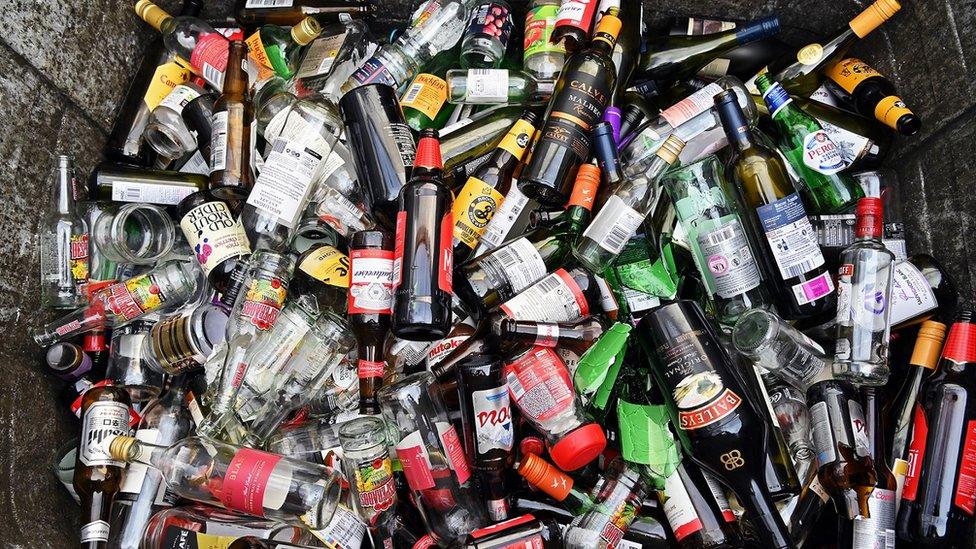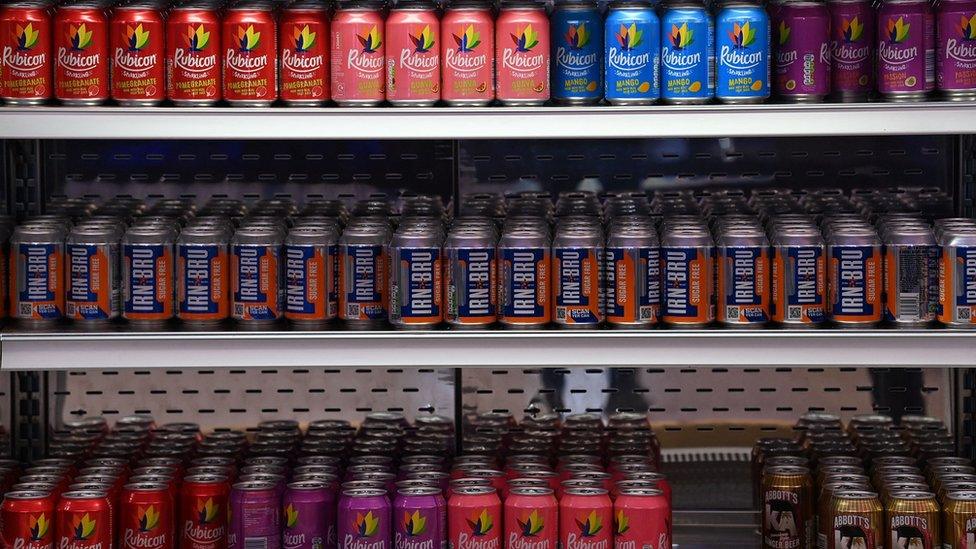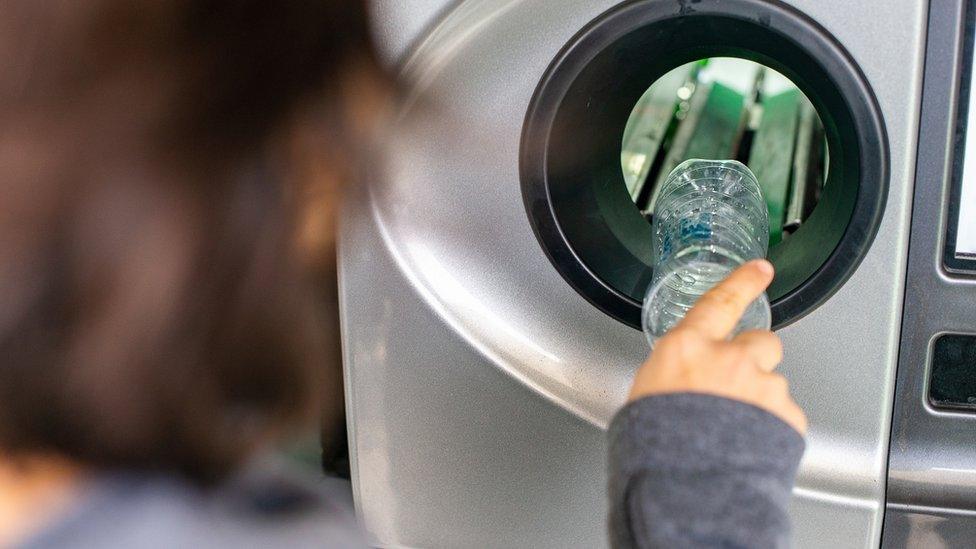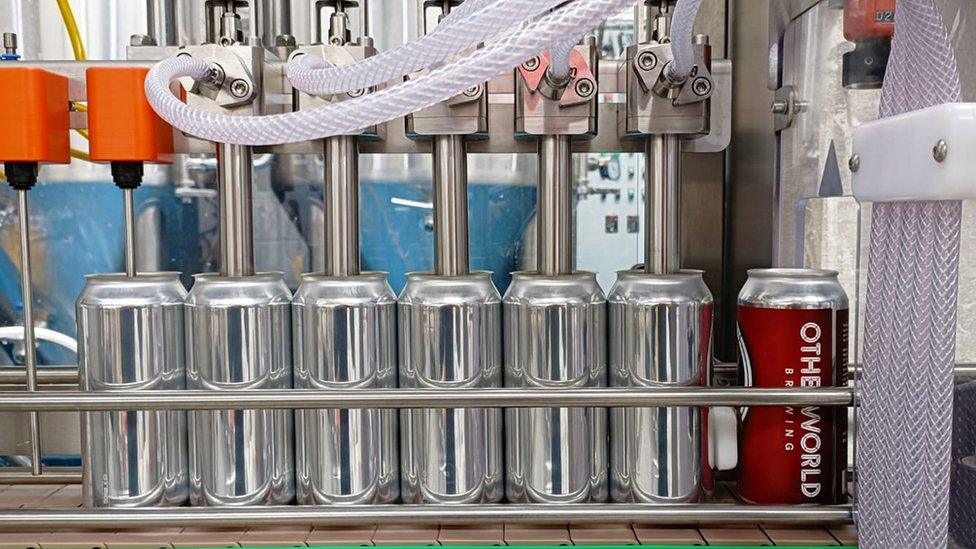Coca-Cola and AG Barr in recycling scheme plea to new FM
- Published

Scotland is aiming to be the first part of the UK to introduce a deposit return scheme for single-use drinks containers.
Soft drinks firms including Coca-Cola, PepsiCo and the makers of Irn Bru have urged the next first minister to deliver a recycling scheme on time.
The British Soft Drinks Association asked the new leader to make the deposit return scheme a "top priority".
All three candidates hoping to succeed Nicola Sturgeon have raised concerns.
A BSDA spokesman said: "Please focus on ironing out the kinks, maintaining a level playing field and delivering the scheme on time."
Scotland is aiming to be the first part of the UK to introduce a deposit return scheme for single-use drinks containers.
A 20p deposit would be added to all single-use drinks containers made of PET plastic, metal or glass.
The money would be returned to the customer when the empty containers are returned. It applies to both alcoholic and soft drinks.
Some businesses have said previously that the scheme will place extra costs and other burdens on them at a time when they are already struggling.
All three SNP leadership contenders now say the initiative will not go ahead in its present form - Kate Forbes and Ash Regan want it paused, while Humza Yousaf would exempt smaller firms for a year.
Lorna Slater, the Scottish Greens minister leading the scheme, says she is "actively considering" such a grace period for small businesses.
At her party's conference on Saturday, she repeated her commitment to the scheme, saying it would "dramatically increase recycling, reduce littering and cut emissions".
She added that it was a tried-and-tested policy based on successful schemes around the world, where the polluter pays instead of the public picking up a bill for rubbish.
The scheme is due to go live on 16 August.

Soft drinks served in tin cans would be part of the deposit return scheme, which will launch on 16 August
Gavin Partington, director general of the BSDA, said DRS had to be a top priority for the new first minister.
He added that he wants the next leader to commit to the current timeframe and focus on a smooth delivery.
Roger White, the chief executive of AG Barr - the maker of Irn Bru and also a member of the BSDA - warned against delaying the introduction of the scheme.
He added: "Scotland's DRS delivers for the environment, society and industry and to delay it now would be to the detriment of all those things."
Drinks producers and importers are responsible for delivering the scheme but a private non-profit company called Circularity Scotland has been created to administer it on their behalf.
Retailers also have a key role to play by operating the container return points.
Reduce litter
Stephen Moorhouse, VP and general manager at Coca-Cola Europacific Partners GB, said the company and other "responsible producers" had spent the past three years preparing for the launch of DRS.
He said: "We remain committed to the current timescale, but the Scottish government's clear and full support for DRS is critical if the scheme is to launch successfully in August."
The aim of the DRS is to incentivise recycling, to reduce litter and help tackle climate change by reducing the amount of material going to landfill.
Dr Kat Jones, director of the Association for the Protection of Rural Scotland (APRS) said it was "extremely encouraging" to see so many producers committed to working in a more sustainable way.
She said delaying the scheme again would be "irresponsible and counterproductive" and would leave those businesses which had prepared for it out of pocket.
She added: "As things stand, more than 900 million cans and bottles are wasted in Scotland every year, ending up in landfill, incineration, or littered in our towns and our countryside.
"This is expensive as well as environmentally damaging. And it is also not good for the reputation of drinks producers, whose customers want them to take part in deposit return, just as those same companies already do across so many other European countries."
A Scottish government spokesperson said that ministers remain committed to the August start date for the DRS.
They said: "It will make producers responsible for recycling the bottles and cans they put on the market. Similar schemes are common in other European countries and have been shown to be very effective at reducing litter and increasing recycling rates."
Related topics
- Published1 March 2023

- Published21 February 2023

- Published7 June 2023
